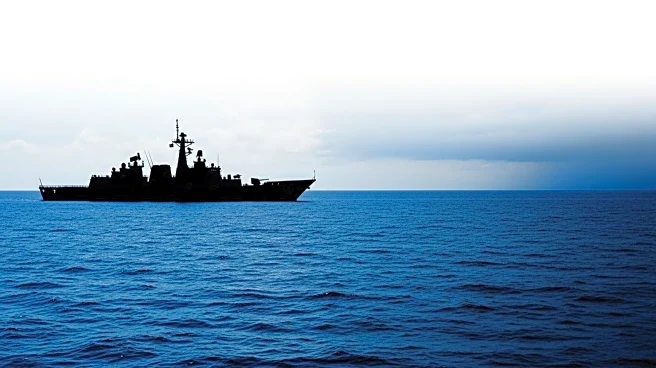What's Happening?
A maritime confrontation between China and the Philippines has escalated tensions in the South China Sea. The incident involved Chinese maritime forces deploying water cannon and ramming a Filipino vessel near the Philippine-occupied Thitu Island. The Philippines has condemned the actions and plans to pursue diplomatic measures. China's coast guard claims the Filipino vessels illegally entered waters near Sandy Cay, leading to the collision. The disputed area, part of the Spratly Islands, has been a longstanding point of contention between the two nations, with multiple countries asserting claims over the strategic waterway.
Why It's Important?
The South China Sea is a critical trade route, facilitating over $3 trillion in annual commerce. The ongoing territorial disputes in the region have significant implications for international trade and geopolitical stability. The confrontation between China and the Philippines could further strain relations and impact regional security. The involvement of the U.S., with Ambassador MaryKay Carlson condemning China's actions, highlights the international dimension of the conflict. The incident underscores the need for diplomatic solutions to prevent further escalation and ensure the safety of maritime operations in the contested waters.
What's Next?
The Philippines is expected to continue its operations in the area to protect its fishermen, while pursuing diplomatic channels to address the incident. The international community, including the U.S., may increase pressure on China to adhere to maritime laws and respect territorial claims. Further confrontations could lead to heightened military presence and increased diplomatic efforts to resolve the disputes peacefully.
Beyond the Headlines
The incident reflects broader geopolitical tensions in the South China Sea, where multiple nations vie for control over resource-rich areas. The strategic importance of the region makes it a focal point for international diplomacy and potential conflict. The situation calls for a balanced approach to uphold international maritime laws and protect the interests of all parties involved.











